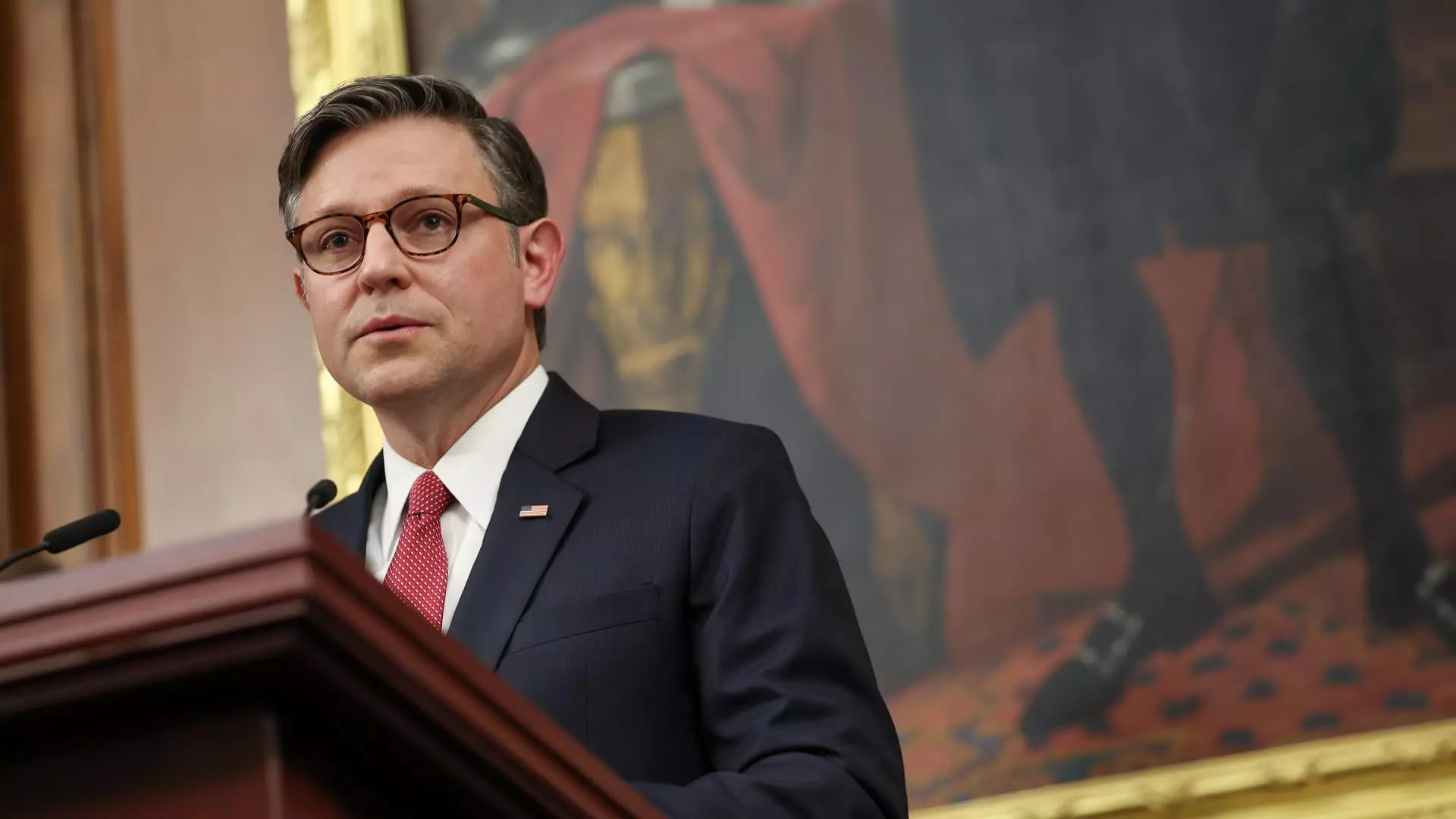In a disconcerting display of constitutional disregard, House Speaker Mike Johnson of Louisiana has recently claimed that the War Powers Act is unconstitutional. This assertion is not merely a deviation from historical precedent but an alarming indication of the increasing willingness among certain quarters of the political elite to reinterpret or even dismantle the legal frameworks established to prevent unilateral military action by the presidency. As Johnson affirmed, President Trump’s aggressive military tactics against Iran fall squarely within his Article II powers. Yet, what is astonishing is how routinely this power has been invoked without appropriate checks and balances, turning a blind eye to the foundational principle that Congress, and not the executive, has the authority to declare war.
The War Powers Resolution of 1973 was designed precisely to curb the executive’s ability to unilaterally engage in military conflicts. Amidst the echoes of the Nixon-era controversies that birthed this legislation, one might wonder if we have learned anything from our history. Johnson’s stance that more than forty years of legislative intent bulwarked by constitutional scholarship can be deemed unconstitutional speaks volumes about the current political landscape. It is a chilling reminder that power, once misappropriated, tends to erode the very structures intended to contain it.
The Paradox of Power
Johnson’s position also reflects an inherent contradiction within the political right: a simultaneous call for limited government accompanied by an unwavering support for expansive executive power. The narrative that president Trump’s drone strikes on Iranian nuclear targets are within his rights under the existing constitutional framework sacrifices accountability at the altar of authority. The negligence of Congress to formally declare war since World War II signifies a collective failure, reducing its capability to challenge the increasingly empowered presidency. While the president is rightly the commander-in-chief, this has devolved into a dangerous precedent where military engagements can be initiated with alarming impulsiveness.
The subsequent introduction of a War Powers resolution co-sponsored by Rep. Thomas Massie and Rep. Ro Khanna underscores a significant partisan fracture regarding congressional war powers. However, the genuine potency of this resolution is stymied by the prevailing political climate, where party loyalty often supersedes principled governance. A resolution branded as “privileged,” albeit politically charged, must nevertheless wrestle against Johnson’s resolute resistance. His recent interactions with Massie only confirm the discomfort with overtly challenging presidential decisions, further cementing the narrative of ineffectual legislative engagement.
The Threat of Normalizing Conflict
The recent tensions in the Middle East, particularly between Iran and Israel, serve as a backdrop to this contentious struggle over power dynamics in Washington. The implications of Johnson’s declarations extend beyond limiting congressional oversight; they signify a troubling normalization of military action as a first resort. Trump’s efforts to aggressively pursue military operations without congressional approval may be termed as a swift decision-making model, yet this reckless approach ignores the gravitas of military engagement in relation to international law and diplomatic relationships.
As the Democratic push for a resolution to bar unauthorized hostilities in Iran gains traction, the stakes elevate beyond mere legislative maneuvering. The escalating conflict raises critical questions about the essence of American identity and righteousness in foreign affairs. If military action morphs into a sidelined aspect of policymaking not tempered by deliberative processes, the repercussions could be grave, entangling the nation in protracted conflicts with little recourse or rationale.
The Role of Citizens in Shaping Policy
The current polarized political climate often grants the impression that the public has little say in shaping vital policy decisions, particularly in matters of war. However, citizen engagement should be vital in dictating how military powers are exercised. The willingness of constituents to demand accountability—be it through contacting representatives or mobilizing public opinion—plays a crucial role in challenging the growing normalization of executive overreach. The populace must reclaim its voice, reminding both the legislative and executive branches that unchecked military engagement threatens not just international stability, but the ethical core of American democracy.
As Johnson and others in power rally around an interpretation of authority that oscillates between convenience and constitutional fidelity, the American public must hold these leaders accountable. History has shown that power left unchecked can lead to catastrophe both domestically and abroad. It is incumbent upon citizens to advocate for a rebalance in the political discourse surrounding war—demanding a restored alignment between presidential power and congressional responsibility.



Leave a Reply